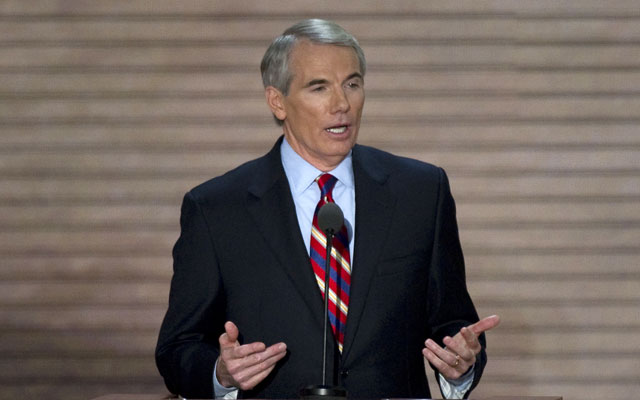Portman: Right on the Court, Wrong on Marriage
Ryan T. Anderson /
Senator Rob Portman (R–OH) announced this morning that he now supports the redefinition of marriage to include same-sex couples. He was clear, however, that the Supreme Court should not impose this redefinition.
Americans and their elected officials have constitutional authority to make marriage policy. When Americans hear the case for marriage as the union of a man and a woman and its importance to children and limited government, by and large they support it and stand for this timeless institution.
Indeed, support for marriage as the union of a man and a woman is essential to American—and conservative—principles. Yesterday at CPAC, Heritage President-elect Jim DeMint explained:
We cannot hope to limit government if we do not stand up for our core civil society institutions, beginning with marriage. Marriage is the foundation of America’s cultural stability and economic prosperity and the courts have no business overruling the people’s democratic decisions in the states. People can love whom they want and live the way they choose, but no one is entitled to redefine a foundational institution of civil society that has existed for centuries.
In two weeks, the Supreme Court will hear arguments against the right of states to protect marriage and the federal Defense of Marriage Act. Judicial activism is to blame for the Court even considering these cases. The Supreme Court should uphold these laws. It must recognize that the American people should make these decisions, not unelected judges.
We are told that the social issues divide Americans and that we should stop talking about them. We cannot.
Economic and social conservatism go hand-in-hand. They’re natural allies.
As I explain in a new Heritage Backgrounder, marriage exists to bring a man and a woman together as husband and wife to be father and mother to any children their union produces. It is based on the anthropological truth that men and women are different and complementary, on the biological fact that reproduction depends on a man and a woman, and on the social reality that children need a mother and a father. Marriage has public purposes that transcend its private purposes.
Government recognizes marriage because it is an institution that benefits society in a way that no other relationship does. Marriage is society’s least restrictive means to ensure the well-being of children. Government recognition of marriage protects children by encouraging men and women to commit to each other and take responsibility for their children. While respecting everyone’s liberty, government rightly recognizes, protects, and promotes marriage as the ideal institution for childbearing and childrearing.
Redefining marriage would further distance marriage from the needs of children. It would deny as a matter of policy the ideal that a child needs a mom and a dad. We know that children tend to do best when raised by a mother and a father. The confusion resulting from further delinking childbearing from marriage would force the state to intervene more often in family life and cause welfare programs to grow even more.
In recent years, marriage has been weakened by a revisionist view that is more about adults’ desires than children’s needs. Redefining marriage leaves emotional intensity as the only thing left to set marriage apart from other kinds of relationships. It puts a new principle into the law—that marriage is whatever emotional bond the government says it is.
Redefining marriage to abandon the norm of male-female sexual complementarity would also make other essential characteristics—such as monogamy, exclusivity, and permanency—optional. But marriage can’t do the work that society needs it to do if these norms are further weakened. All Americans, especially conservatives who care about thriving civil society capable of limiting the state, should be alarmed.
Redefining marriage is also a direct and demonstrated threat to religious freedom that marginalizes those who affirm marriage as the union of a man and a woman. We have already seen this in neighboring Canada and right here in places such as Massachusetts and Washington, D.C.
The Supreme Court should not usurp democratic authority from citizens and their elected officials. In a Heritage Legal Memorandum, law professor John Eastman argues that the Constitution does not answer the policy questions about redefining marriage, thus:
The ultimate question before the Court, then, is whether the decision to embark on such an experiment is to be made by the people, either through their legislatures or directly by voter initiative, or whether the Constitution, which is silent on this precise question, must be interpreted to have already answered the question.
Promoting marriage doesn’t ban any type of relationship: Adults are free to make choices about their relationships, and they do not need government sanction or license to do so. All Americans have the right to live as they choose, but no one has a right to redefine marriage for the rest of us.

